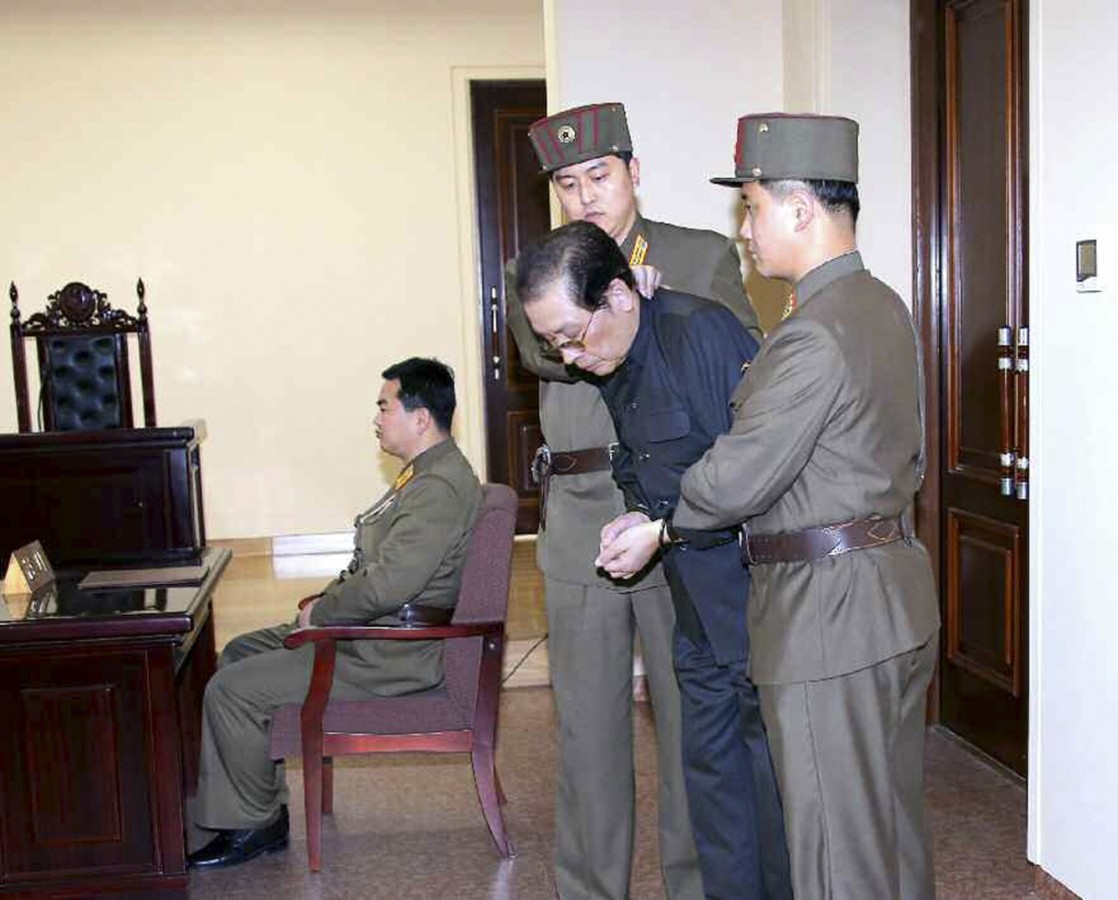By Nile Bowie
13 December, 2013
The humiliating public sacking and subsequent execution of Jang Song-thaek, the man once widely believed to be the second-in-command in North Korea’s political hierarchy, has stunned observers and onlookers.
Dispatches from Pyongyang’s state-media allege that Jang mismanaged economic affairs and had ambitions to stage a coup d’etat against the leadership in Pyongyang.
State-media highlighted how the once elite powerbroker attempted to convert departments under his control into a “little kingdom,” and suggestively alluded to Jang using outside perceptions of himself as a reformer to further his political ambitions.
These developments may be interpreted by some as evidence of instability in the upper echelons of power in Pyongyang, It would be more plausible to infer that the leadership is fully capable of containing threats to its rule, even from a highly established individual married into the Kim family.
Jang Song-thaek, the husband of former leader Kim Jong-il’s sister, has been politically intertwined with North Korea’s ruling family for over four decades and received a top military post in 2011 following the death of Kim Jong-il.
He was known to have been a key figure in maintaining stability in the early months of Kim Jong-un’s tenure and was widely believed to be steering the state’s economic affairs, particularly in joint projects with China.
Jang was held to be one of the most reform-orientated elite officials and an alleged proponent of Chinese-style market reforms; he oversaw the development and administration of the Rason Special Economic Zone and the Hwanggumpyong-Wihwa Island Economic Zone, regions where Pyongyang is guardedly experimenting with foreign investment and joint-ventures.
Indications suggest that Jang’s demise was rooted in disagreements with the leadership on how to boost the economy, with his faction supporting a Chinese-style opening while Kim Jong-un and hardliners support a partial opening through contained and controllable economic zones and joint-projects.
The downfall of Jang naturally presents openings for other figures to emerge as key powerbrokers. Figures such as People’s Army politburo chief Choi Ryong-hae have rapidly risen up the ranks of the military since Kim Jong-un came to power and has been frequented photographed with the young leader in public outings.
As a figure associated with reform, the demise of Jang suggests that conservative policies seen as favorable by the military establishment will remain the mainstay of Kim Jong-un’s handling of economic affairs, foreign policy, and the nuclear issue.
Additionally, the ousting of Jang symbolically marks the moment when Kim Jong-un’s leadership passed from a group-led ‘guardian system’ to one of single-person rule. It would be very unlikely for the leadership in Pyongyang to face any opposition to these internal developments.
It is expected that Kim Jong-un will eventually embark on a foreign visit to China. The Chinese leadership can pursue strategic engagement with the leadership in Pyongyang at the highest levels so as to ascertain the priorities of the young leader, and reshape the approach toward Pyongyang accordingly.
Maintaining long-term regional stability and friendly bilateral ties are the objectives of China’s policy toward Pyongyang, and a diplomatic exchange at the highest levels is sorely needed to establish greater policy synergy to the benefit of both parties.
The current scenario leaves much to be clarified, and regional stability can be managed only through measured dialogue that examines both governments’ grievances and positions on various issues.
Integration through economic exchange should remain the central approach in deepening Sino-Korean relations and ensuring stability, and high-level talks with Kim Jong-un should be explored to further these policies.
As the Chinese proverb goes, “A small hole not mended in time will become a big hole much more difficult to mend.”
The author is an independent journalist and a columnist with Russia Today (RT) covering international affairs.

